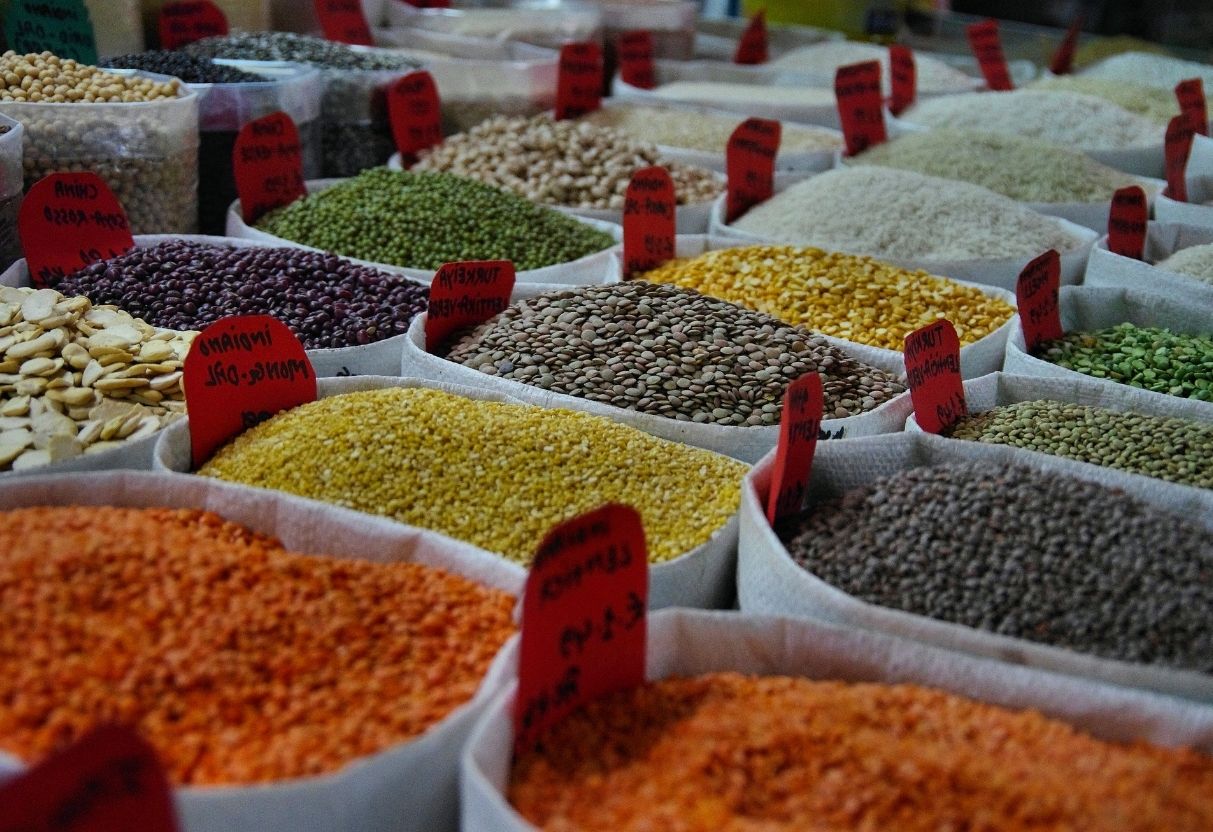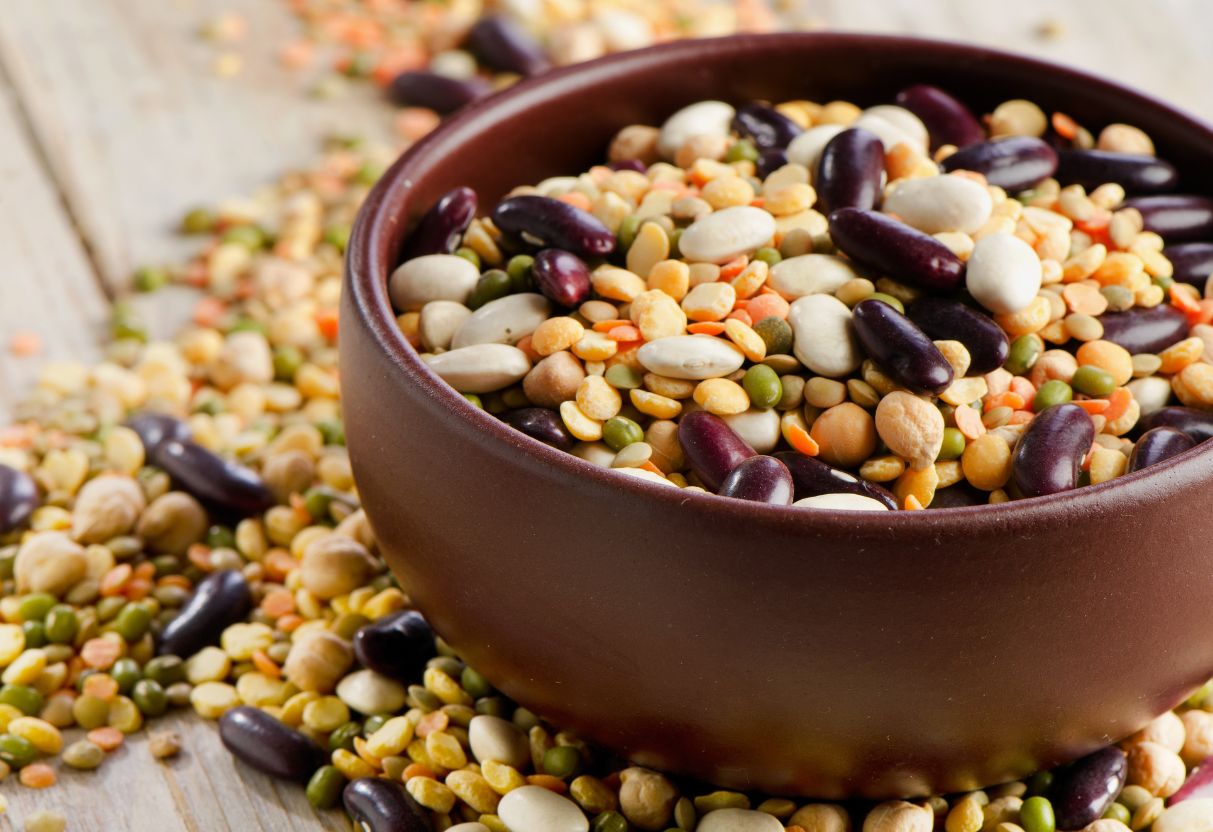Health Benefits of Broad Beans: Key Nutritional Advantages

Broad beans, also known as fava beans, are a remarkable member of the Fabaceae family, known for their rich nutritional value and range of health benefits.
Packed with essential nutrients, these beans are more than just a staple in various cuisines around the globe; they are a powerful ally for your health.
Consuming broad beans can contribute to your overall wellness in various ways, from improving digestive health to supporting cognitive function.

Integrating broad beans into your diet can enhance your nutrient intake with their high levels of protein, fiber, vitamins, and minerals.
Their versatility in the kitchen means that including them in your meals can be both nutritious and enjoyable.
Furthermore, broad beans have been repeatedly recognized for their potential in managing weight, stabilizing blood sugar, and even improving heart health.
Understanding the health benefits they offer can motivate you to consider them not just as a food choice but as a step towards a healthier lifestyle.
Key Takeaways
- Broad beans are a nutritious addition to your diet, providing a range of vitamins and minerals.
- Regular consumption of these beans supports various aspects of health, including heart and digestive health.
- Including broad beans in meals can be both tasty and beneficial for your overall well-being.
Nutritional Profile of Broad Beans

Broad beans, also known as fava beans, are a nutrient-dense legume that can be a valuable part of your diet. They boast a high content of protein and fiber, along with an impressive array of vitamins and minerals that contribute to overall health.
Protein and Plant-Based Nutrients
Broad beans are a rich source of plant-based protein, making them an excellent choice for vegetarians and vegans looking to increase their protein intake.
A 100-gram serving of broad beans contains significant amounts of protein, which is vital for muscle repair and immune system maintenance.
This legume is also packed with antioxidants, contributing to a robust and resilient body.
Fiber Content and Digestive Health
Dietary fiber is abundant in broad beans, promoting digestive health and regularity.
The fiber content in these beans aids in slowing the absorption of carbohydrates, which helps manage blood sugar levels.
Including broad beans in your diet can help you meet your daily fiber requirements, supporting a healthy gut.
Vitamins and Minerals
Broad beans are a vital source of vitamins and minerals, particularly iron, folate, magnesium, potassium, zinc, and phosphorus.
These nutrients play crucial roles in your body, from forming red blood cells to bone health and energy production.
The presence of B vitamins in broad beans is important for various metabolic processes, while folate is essential for DNA synthesis and repair.
Health Advantages of Broad Beans

Broad beans boast a rich nutritional profile that offers numerous health advantages. Packed with fiber, folate, and essential minerals, they contribute to heart health, blood sugar regulation, weight management, and immune function improvement.
Heart Health and Cholesterol Regulation
Eating broad beans can be beneficial for your heart health.
They're high in soluble fiber, which can help to reduce your body's cholesterol levels.
Specifically, the fiber in broad beans binds to cholesterol in the body, aiding its removal and consequently lowering the risk of heart disease.
Including broad beans in your diet might also contribute to cholesterol regulation, which is essential for overall cardiovascular health.
Blood Sugar Control and Diabetes Management
If managing your blood sugar levels is a concern, broad beans are a smart food choice.
The fiber content assists in slowing down glucose absorption, providing a more stable blood sugar level.
For individuals with diabetes or those at risk, incorporating legumes like broad beans into meals can be an effective diabetes management strategy.
They offer a low glycemic index, making them suitable for a blood-sugar-friendly diet.
Weight Management and Satiety
Broad beans can also play a role in weight management.
The combination of protein and fiber increases satiety, which means you feel full longer after eating them.
This can prevent overeating and help in weight loss efforts, particularly useful if you're dealing with obesity.
As a nutrient-dense food, they provide substantial nourishment with fewer calories, making them an excellent addition to a balanced diet.
Enhanced Immune Function
Lastly, your immune system can benefit from the regular consumption of broad beans.
They are a source of vitamins and minerals like vitamin C and manganese, which play crucial roles in maintaining immune function.
Broad beans also contain phytochemicals, such as flavonoids and polyphenols, with antioxidant properties that help protect your body from harmful free radicals.
Incorporating broad beans into dishes like salads can be both a healthful and a tasty way to boost your immunity.
Broader Impacts on Health
Broad beans, a nutrient-dense legume, offer impressive health benefits that may prevent and manage several conditions. They're especially noteworthy for their high iron content, which can help ward off anemia, their rich antioxidant profile to potentially reduce cancer risk, and their contributions to bone health.
Anemia Prevention
Broad beans are a prime source of iron, a critical mineral in the prevention of anemia.
Incorporating broad beans into your diet can help boost your iron levels, ensuring the healthy production of red blood cells and adequate oxygen transport throughout your body.
Cancer Risk Reduction
These legumes are abundant in antioxidants and polyphenols, which play a role in cancer risk reduction.
The antioxidants help neutralize harmful free radicals, while the polyphenols might inhibit cancerous cell growth, contributing to your body's defense against various types of cancer.
Bone Health and Osteoporosis
Maintaining bone density is paramount, and broad beans offer an array of minerals crucial for this purpose.
With a significant content of magnesium and folate, broad beans support bone structure and may reduce the risk of osteoporosis, aiding in the preservation of long-term bone health.
Incorporating Broad Beans into Your Diet
Broad beans, also known as fava beans, can offer delightful variety and rich flavor to your meals. This section guides you through various cooking methods, important considerations, and the culinary versatility that broad beans bring to the table.
Cooking Methods and Recipe Ideas
To enjoy broad beans, you have multiple cooking methods at your disposal.
They can be boiled until tender, which typically takes 25-30 minutes. Alternatively, try roasting them with a bit of olive oil for a crispier texture.
For a quick and nutritious addition to your meals, consider a salad tossed with Clean Beans, feta cheese, and your favorite spices.
If you're after something warmer, broad beans make an excellent ingredient in soups and hearty Mediterranean dishes.
- Boil: 25-30 minutes until tender
- Roast: Coat with olive oil; roast until crispy
- Salad: Mix with feta and spices
- Soups: Combine with legumes and vegetables for a fulfilling meal
Considerations for Consumption
When adding broad beans to your diet, note they are high in purines, which can aggravate gout in susceptible individuals.
It's also worth mentioning that some people might be allergic to fava beans; this condition is known as favism.
- Check for gout: High in purines
- Allergy note: Be aware of favism
Culinary Versatility
Broad beans are incredibly versatile, fitting into various culinary roles.
They can serve as the main protein in vegetarian dishes or a nutrient-rich side dish for meat entrees.
Pulverize them into a paste for a twist on hummus or mix them with other pulses for a balanced legumes blend.
Their sturdy nature allows broad beans to stand up to a range of spices and flavors, making them a robust addition to any salad or warm dish.
- Main dish: Substitute in vegetarian recipes
- Side dishes: Complement to meat or fish
- Hummus: Blend into a tasty paste
- Mix: Combine with legumes
- Flavor pairing: Works with a variety of spices and salads
For an easy way to consume broad beans with 18g of protein, check out Clean Beans.
Frequently Asked Questions
In this section, you'll find concise, evidence-based answers to common queries about the health advantages and considerations of incorporating broad beans into your diet.
What are the health benefits of eating fava beans?
Broad beans, also known as fava beans, are packed with essential nutrients.
They are a great source of dietary fiber, protein, and various vitamins and minerals such as iron, manganese, phosphorus, folate, and more.
Including these beans in your diet may contribute to overall health and wellbeing.
Can broad beans have a positive impact on skin health?
Yes, broad beans can benefit your skin due to their high content of nutrients like vitamin C and folic acid, which are known to aid in collagen synthesis and skin cell repair, respectively.
What are the potential side effects of consuming broad beans?
Some individuals may experience an adverse reaction to broad beans, particularly those with G6PD deficiency, due to their high levels of vicine and convicine.
These can trigger hemolytic anemia in susceptible persons. It's also common for people to experience bloating or gas after consuming fava beans.
How does the nutritional content of broad beans contribute to overall well-being?
The nutritional content of broad beans, including their protein, fiber, vitamins, and minerals, supports various aspects of health.
These aspects include digestive wellness, energy production, and the maintenance of bone strength and heart health.
Do broad beans play a role in managing blood pressure?
Broad beans have a positive effect on blood pressure management.
This is largely due to their potassium content, which helps counteract the effects of sodium in the body and relaxes blood vessels.


